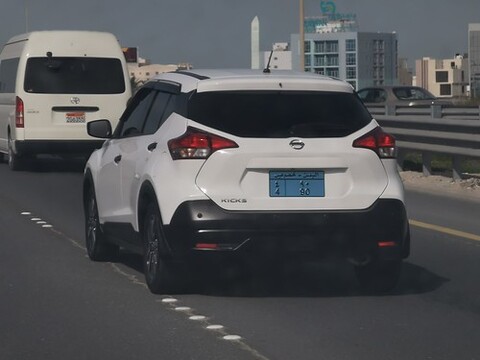Uncovering the Pros and Cons of Car Sharing
Car sharing can be a convenient and cost-effective transportation option for individuals who don't need a car full-time. Instead of owning a car and paying for its maintenance, insurance, and parking, car sharing allows individuals to access a car on an as-needed basis. This can be especially beneficial for people who live in urban areas where public transportation is limited or non-existent, or for those who only need a car occasionally for trips to the grocery store or other short-distance travel.

Car sharing can be a convenient and cost-effective transportation option for individuals who don't need a car full-time. Instead of owning a car and paying for its maintenance, insurance, and parking, car sharing allows individuals to access a car on an as-needed basis. This can be especially beneficial for people who live in urban areas where public transportation is limited or non-existent, or for those who only need a car occasionally for trips to the grocery store or other short-distance travel.
Limited mileage options
One of the main benefits of car sharing is the flexibility it offers. Car sharing services typically have a wide range of vehicles available, including sedans, SUVs, and electric vehicles, and many offer limited mileage options for those who only need a car for short trips. This means that you can choose a car that is the right size and type for your needs, without having to worry about the long-term costs of ownership.
Another advantage of car sharing is the cost savings. While the hourly or daily rental rate may seem high, it can be much cheaper than owning a car. In addition to the cost of the car itself, owning a car also includes expenses like insurance, maintenance, and parking. With car sharing, these costs are all included in the rental fee, so you don't have to worry about any unexpected expenses.
Car sharing can also be more environmentally friendly than owning a car. When multiple people share a car, it reduces the number of cars on the road and reduces emissions. Additionally, many car sharing services offer electric or hybrid vehicles, which can further reduce emissions and help combat climate change.
Pick-up and drop-off restrictions
One of the main downsides of car sharing is the pick-up and drop-off restrictions that are often imposed by the car sharing company. These restrictions can limit the convenience of car sharing and make it less flexible than owning a car. For example, some car sharing companies may only allow pick-up and drop-off of vehicles in designated areas, which can be located far from the user's destination. This can lead to additional travel costs and time, as users may need to take public transportation or drive their own car to reach their destination.
Another downside of car sharing is the cost. While car sharing can be more affordable than owning a car, it can still be expensive, especially for frequent users. Car sharing companies typically charge by the hour or day, and users are responsible for paying for any additional fees, such as fuel or parking. This can make car sharing less cost-effective than owning a car, especially for users who drive frequently or for long distances.
Finally, car sharing can also be risky for users, as they are relying on the reliability and safety of a vehicle that they do not own. While car sharing companies typically have strict safety and maintenance standards, there is still a risk of accidents or breakdowns. This can be especially problematic for users who are not familiar with the specific make and model of the car they are using.
One-way rentals
One of the key benefits of car sharing is the flexibility it offers. Many car sharing services allow you to rent a car for as little as an hour or two, which can be perfect for short trips or errands. Additionally, some car sharing services offer one-way rentals, which means you can pick up a car in one location and return it in another, making it easier to travel to your destination without having to worry about driving back.
Car sharing services also offer a variety of vehicles to choose from, which can be a major advantage for those who need a specific type of car for their trip. For example, if you're planning a trip to the beach, you may be able to rent a car with a bike rack or a large SUV for hauling gear. Similarly, if you need a car for a business trip, you may be able to rent a luxury sedan or a hybrid car for a more professional appearance.
Long-term rentals
Car sharing can also be a good option for people who need a car for a longer period of time, such as a week or a month. Many car sharing companies offer long-term rental options, which can be a more affordable alternative to traditional car rentals. Long-term rental agreements are also often available on a flexible basis, which means that you can extend or shorten the length of your rental as needed.
Car sharing can also be a good option for people who need a specific type of car for a specific purpose. For example, if you need a larger car to transport a lot of people or a lot of luggage, or if you need a pickup truck to move furniture or other large items, car sharing companies often have a variety of different car models available for rent. This can be a more cost-effective option than owning a car that you only use occasionally.
However, there are also some potential downsides to car sharing. One of the main drawbacks is that car sharing companies often have limited service areas, so you may not be able to access a car if you need it in a location that is not covered by the company's service area. Additionally, car sharing can be more expensive than traditional car ownership in some cases, especially if you use the car frequently or for long trips.
Different car options
One of the main advantages of car sharing is the variety of car options it offers. Most car sharing companies offer a range of vehicles, from compact cars to SUVs, that are available for short-term rental. This means that individuals can choose the type of car that best suits their needs, whether they need a larger vehicle for hauling cargo or a smaller car for navigating city streets.
In addition to a variety of car options, many car sharing companies also offer electric and hybrid vehicles. This can be a great option for those who are environmentally conscious and want to reduce their carbon footprint. Car sharing can also be a more cost-effective option than owning a car, as many car sharing companies offer lower rates for electric and hybrid vehicles.
Different insurance coverage options
One of the primary benefits of car sharing is that it provides different insurance coverage options for drivers. When you own a car, you are responsible for purchasing and maintaining your own insurance policy. However, with car sharing, the vehicle owner is typically responsible for providing insurance coverage for the car. This means that car sharing drivers do not need to purchase insurance or worry about maintaining their own policy.
Additionally, many car sharing companies offer insurance policies specifically designed for car sharing. These policies often provide coverage for collision, liability, and other types of damage, and may be more affordable than traditional car insurance policies. It's important to carefully review the insurance coverage options provided by the car sharing company before signing up, to ensure that you understand what is covered and what is not.
Sharing a car with strangers
One of the biggest downsides of car sharing is that you are sharing a car with strangers. This means that you have no control over who drives your car or how they treat it. You also have to trust that the person who borrowed the car before you returned it in good condition. While most car sharing companies have strict rules and procedures in place to ensure the safety and reliability of their vehicles, it's still a concern for some people.
Another downside of car sharing is that you may not always be able to find an available car in your area when you need it. Car sharing companies typically have a limited number of vehicles in each location, and they can quickly become occupied during peak hours. This can be frustrating if you have a specific schedule or need a car for a specific errand.
Additional fees for things like fuel, tolls, or parking
One of the biggest drawbacks of car sharing is the potential for additional fees. While the hourly or daily rental rate may be affordable, users may be charged extra for things like fuel, tolls, or parking. This can quickly add up and make car sharing less cost-effective than owning a car.
Another potential disadvantage of car sharing is that the cars may not always be available when you need them. Many car sharing companies have a limited number of cars available in a given area, and it's possible that all of the cars in your area may be in use when you need one. This can be especially frustrating if you have a specific schedule or need to travel a long distance.
Availability may be limited in some areas
Car sharing services may not be available in all areas. Some companies have limited their services to urban areas where public transportation is limited or non-existent. If you live in a rural area or a city with a comprehensive public transportation system, car sharing may not be a viable option for you.
Additionally, car sharing services may be seasonal, with some companies offering a reduced number of vehicles or limited availability during the off-season. If you need a car year-round, it's important to check with car sharing companies to determine if their services are available in your area and during the times you need them.
Unpredictable
One of the primary benefits of car sharing is that it offers a flexible transportation option that can be used on an as-needed basis. This is especially beneficial for individuals who have a hard time predicting their transportation needs, such as those who have erratic work schedules or who frequently travel for business. With car sharing, they can quickly and easily access a car when they need it, without having to worry about the long-term costs and responsibilities of car ownership.
However, car sharing also has its downsides, one of which is the unpredictability of the service. Because car sharing vehicles are in high demand, it can be difficult to reserve a car at the exact time you need it. This can result in long wait times or even the inability to access a car when you need it, which can be frustrating for some individuals.Car sharing companies offer a range of membership plans to suit different needs and budgets. These plans vary in price and include different benefits, such as the ability to reserve a car in advance or to use a car for a longer period of time. It is important to carefully consider your transportation needs and budget before choosing a car sharing plan, so that you can make the most of the service and avoid any unexpected costs or inconveniences.
Rates can fluctuate
One potential downside of car sharing is that rates can fluctuate based on demand. During peak times, such as weekends or holidays, prices may be higher due to increased demand for cars. This can make it more expensive to use car sharing services during these times, especially for infrequent users.
Another potential downside of car sharing is that the availability of cars may be limited in certain areas, especially during peak times. This can make it difficult to find a car when you need it, and may require you to plan your trip in advance to ensure that a car will be available when you need it.

In conclusion, car sharing has its pros and cons, and it's important to weigh the advantages and disadvantages before deciding if it's the right option for you. If you live in an urban area and don't need a car full-time, car sharing can be a convenient and cost-effective transportation option. However, it's important to be aware of the potential downsides, such as fluctuating rates, unpredictable availability, and additional fees for things like fuel, tolls, or parking. Additionally, you'll want to consider different insurance coverage options and car options that are available, as well as long-term rental, one-way rental, and pick-up and drop-off restrictions. Ultimately, car sharing is a flexible and affordable transportation option that can be a good fit for many people, but it's important to do your research and carefully consider the pros and cons before deciding if it's the right option for you.
If you're interested in car sharing, it's important to do your research and find a reputable and reliable car sharing company. Look for a company that has a wide network of cars available in your area, as well as a variety of car options to choose from. Be sure to carefully read the company's terms and conditions and understand the insurance coverage options that are available. Additionally, it's a good idea to read reviews from other customers to get an idea of their experiences with the company. With a little bit of research, you can find a car sharing company that meets your needs and provides a convenient and affordable transportation option.
 By: @Alex
(Alex Turner)
By: @Alex
(Alex Turner)